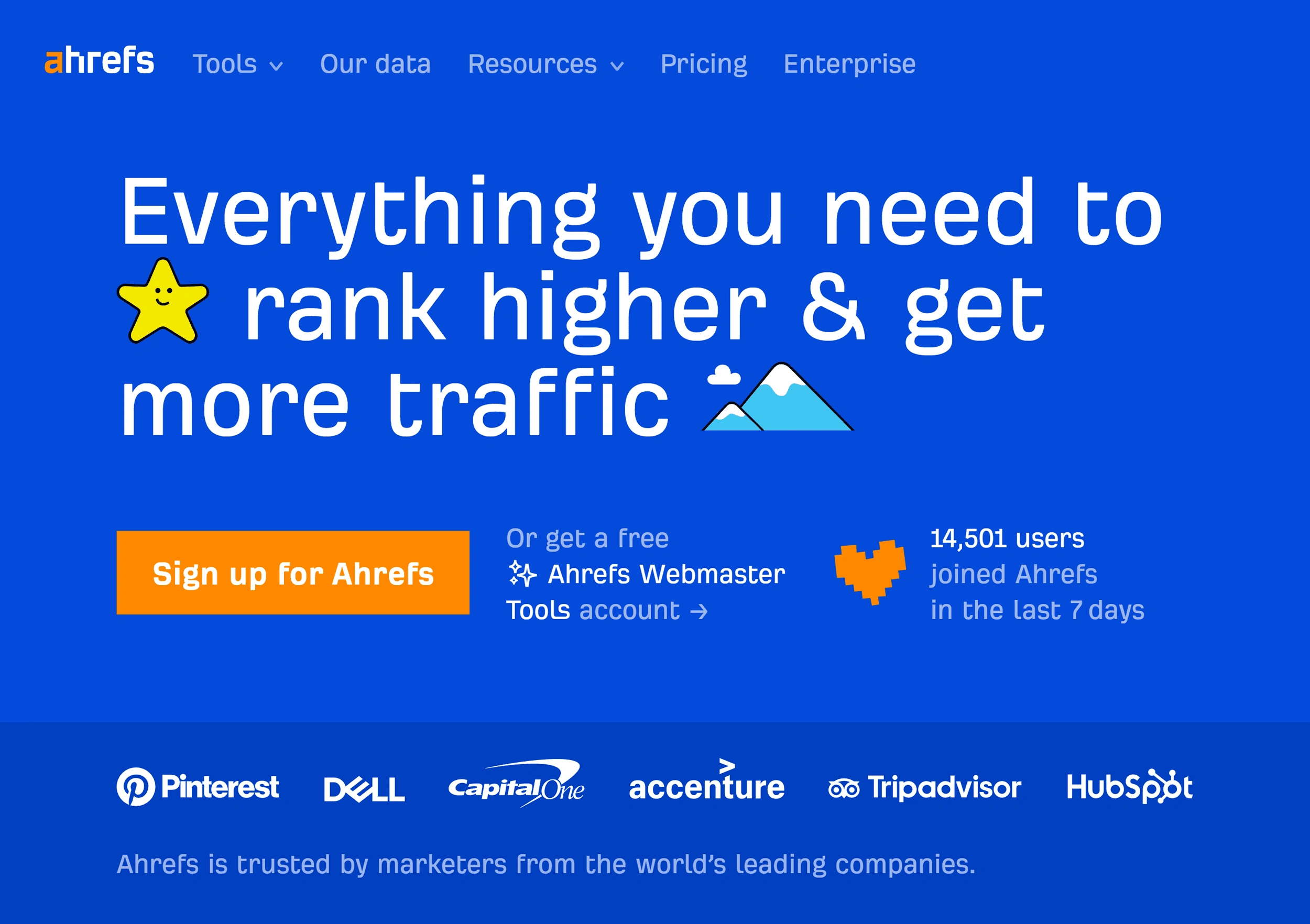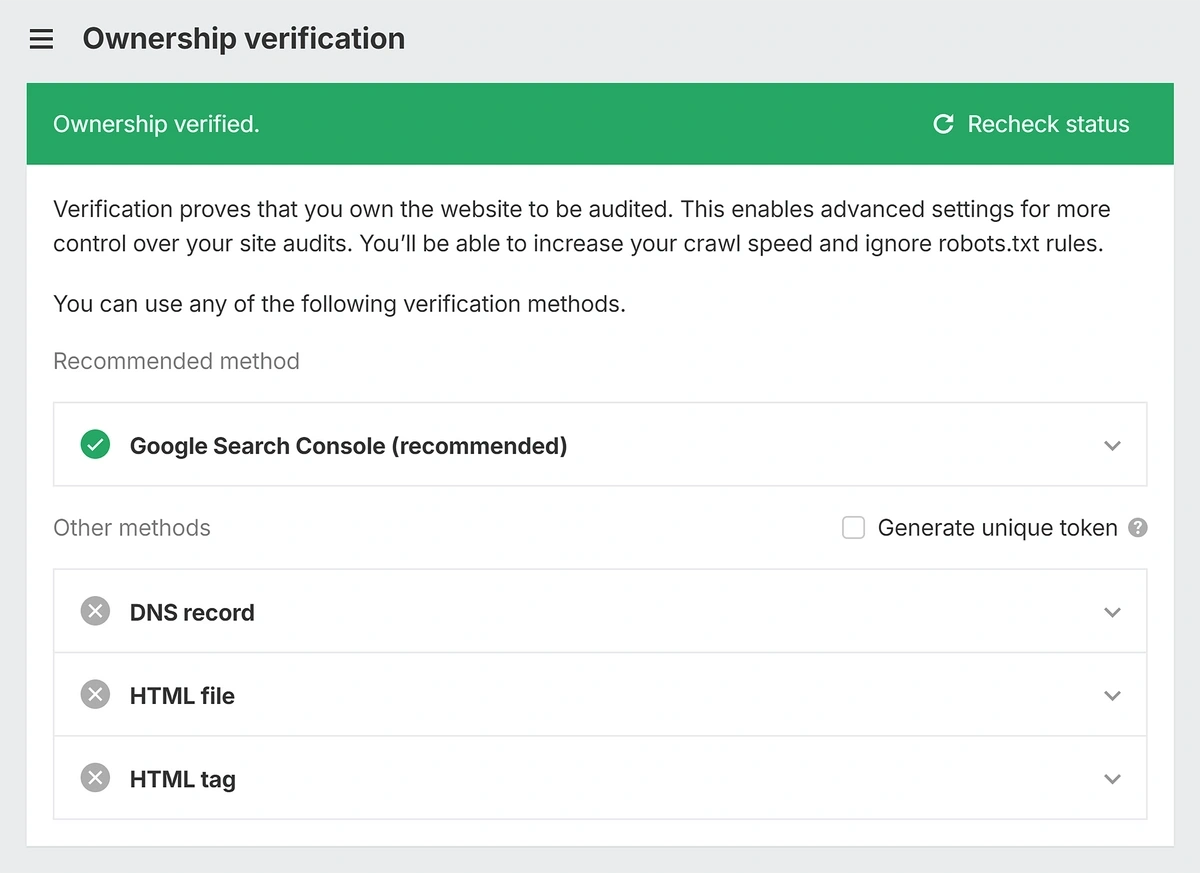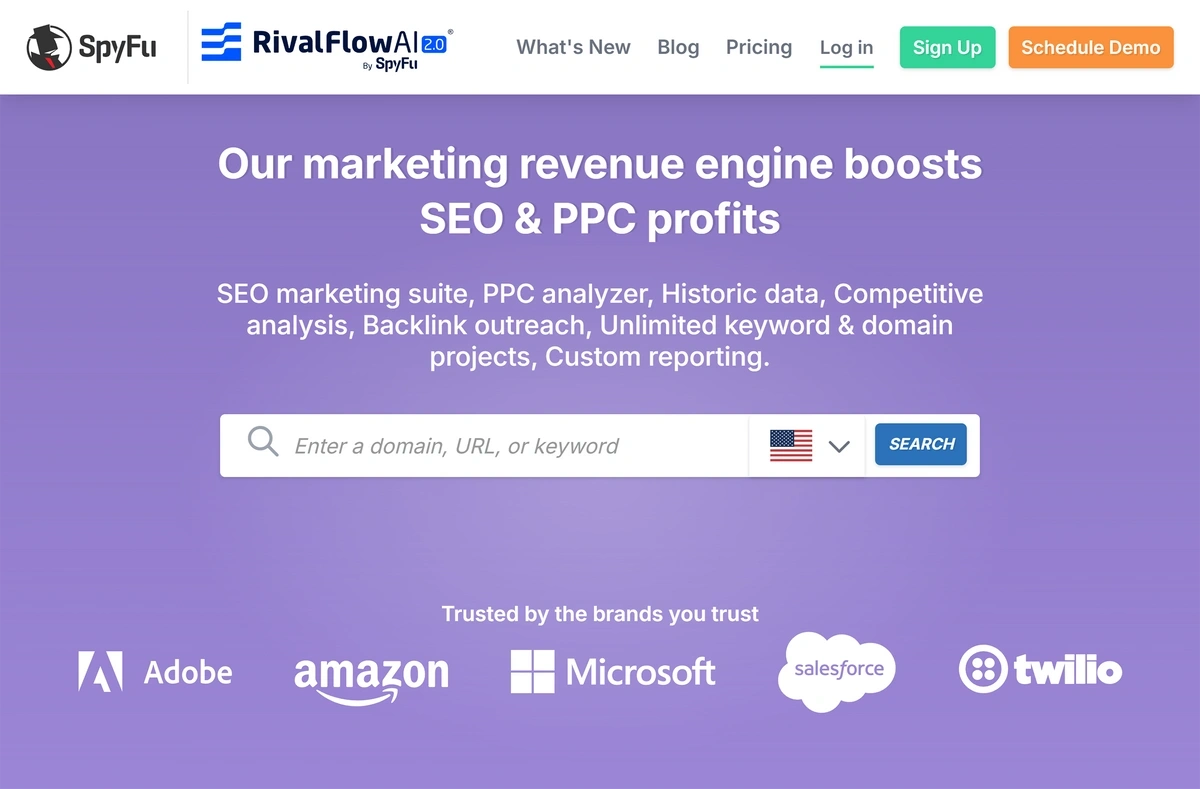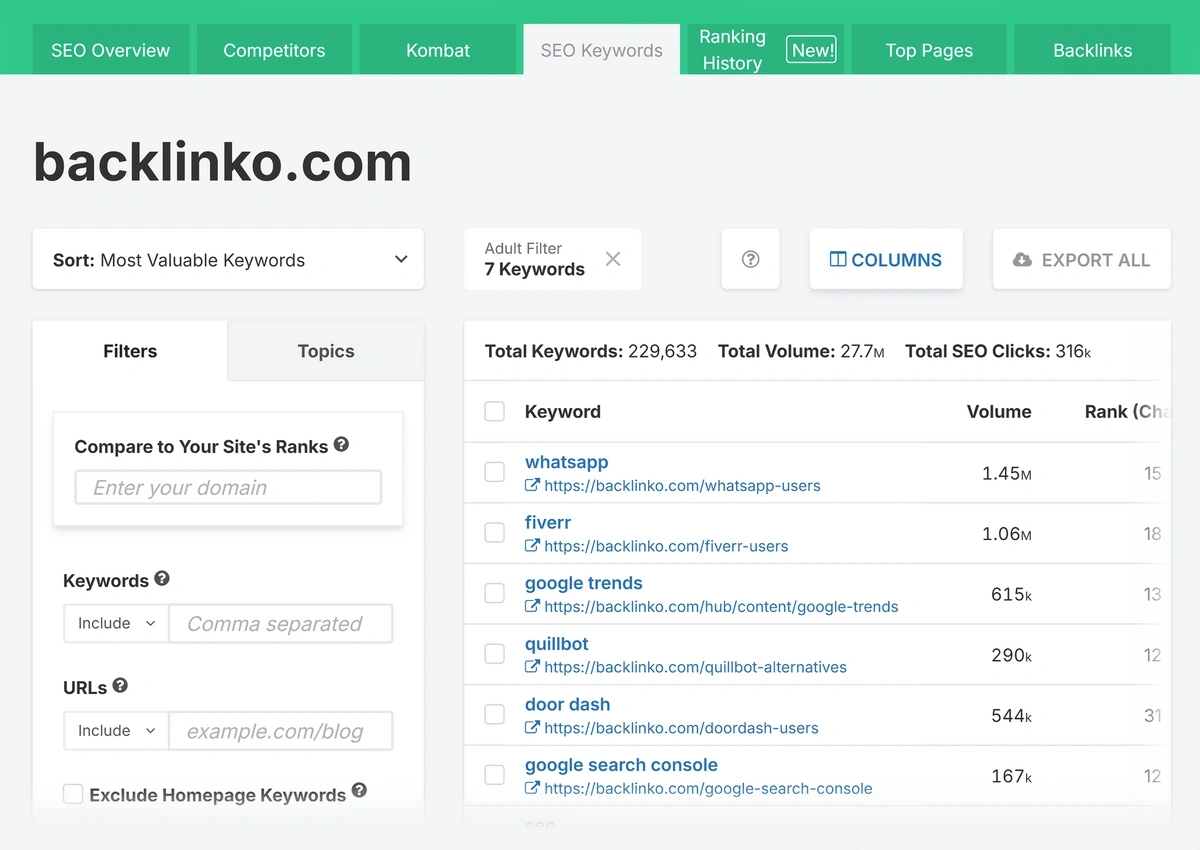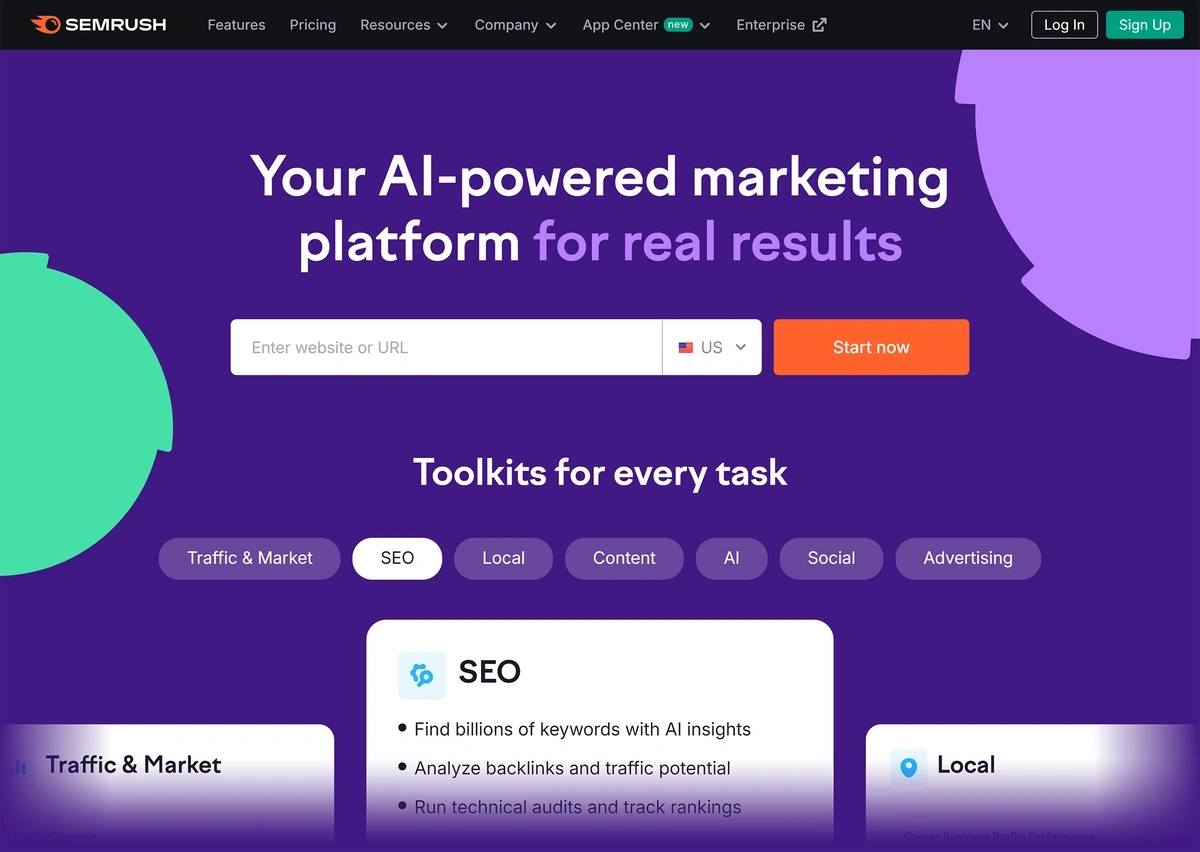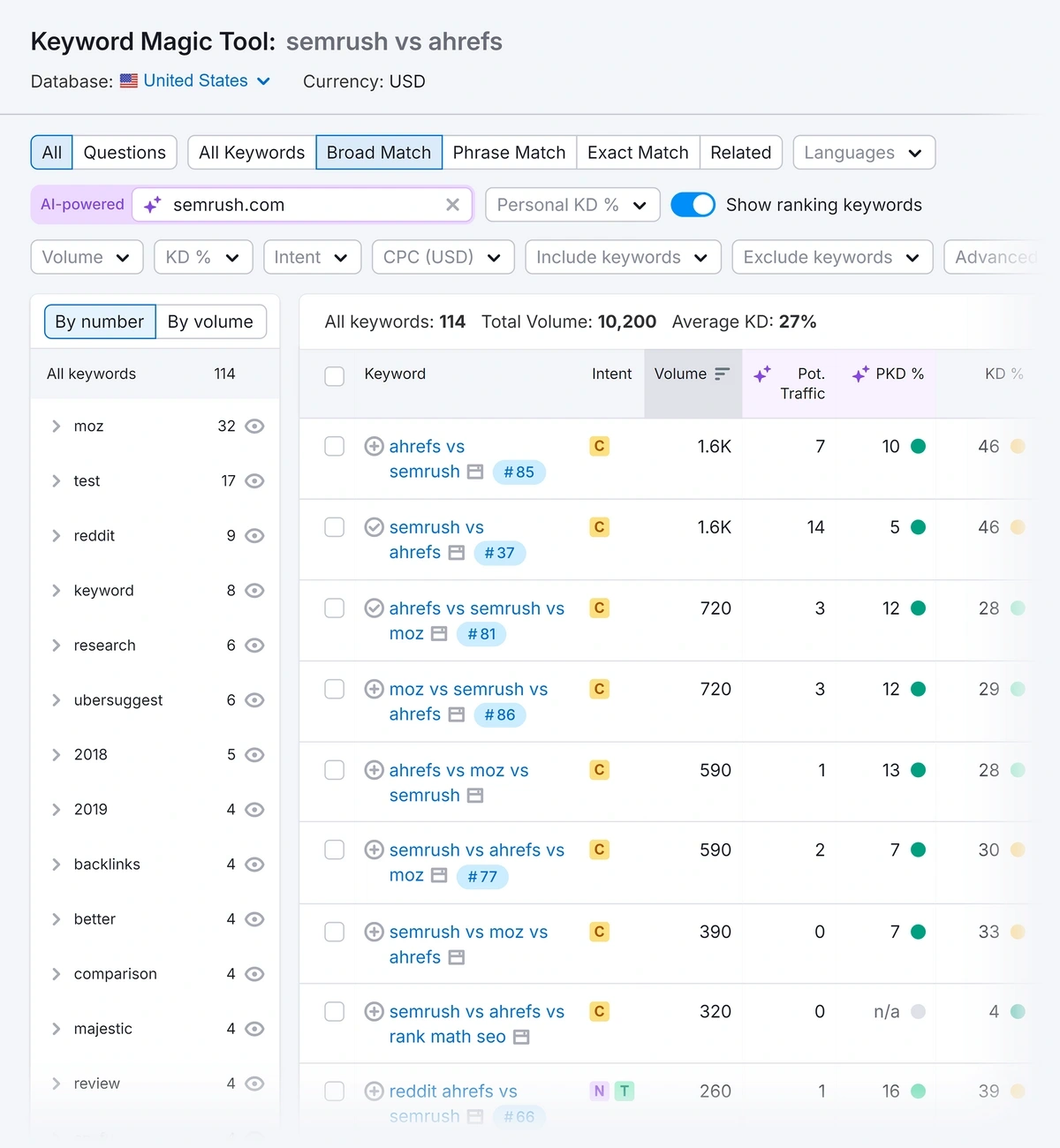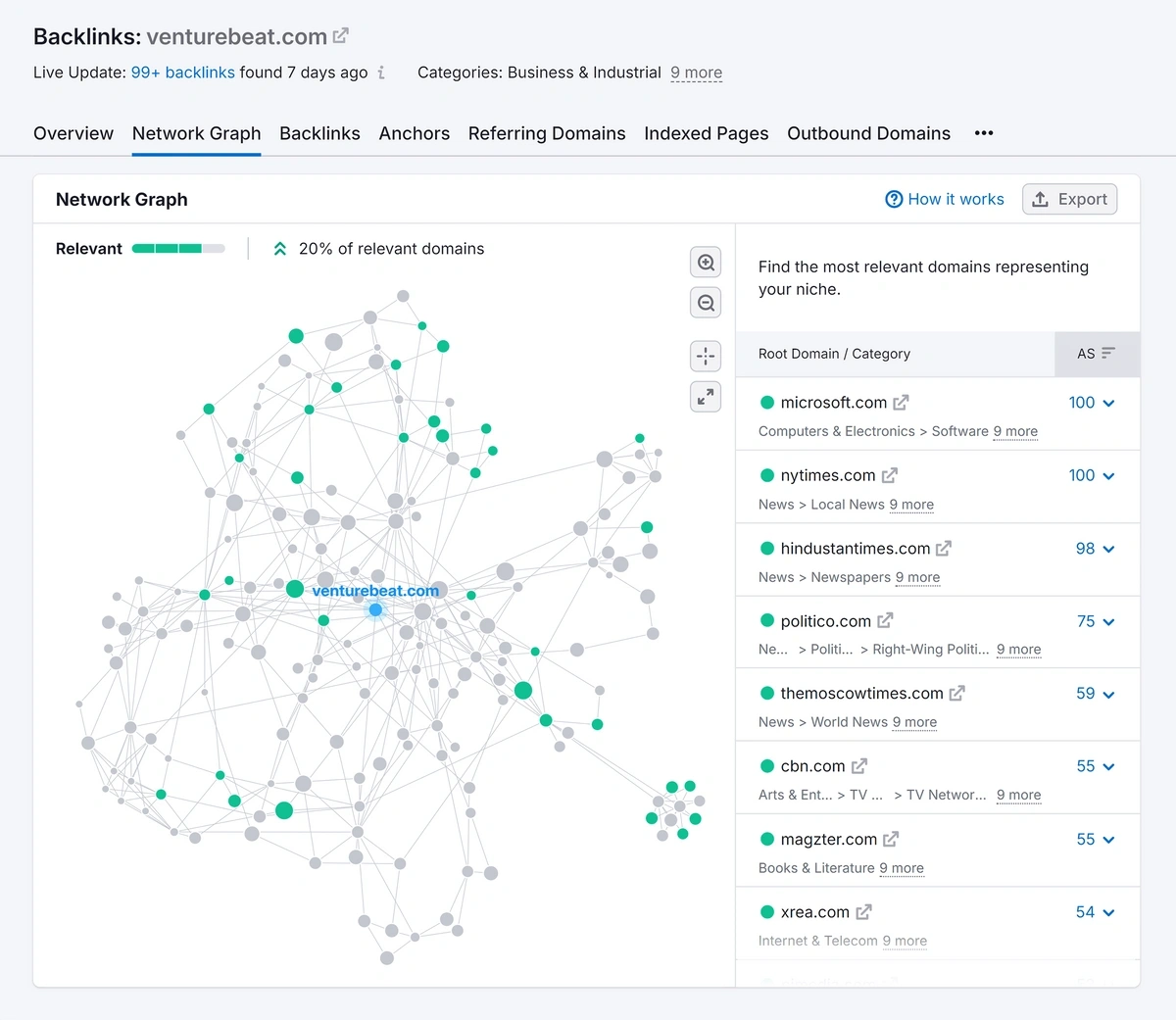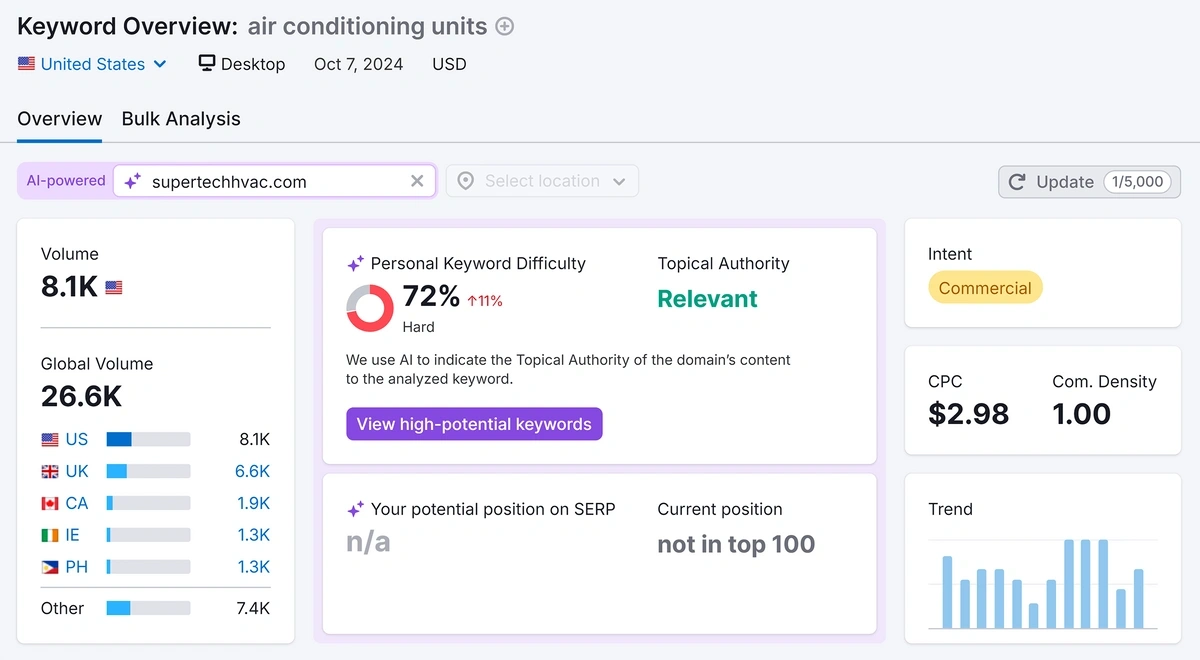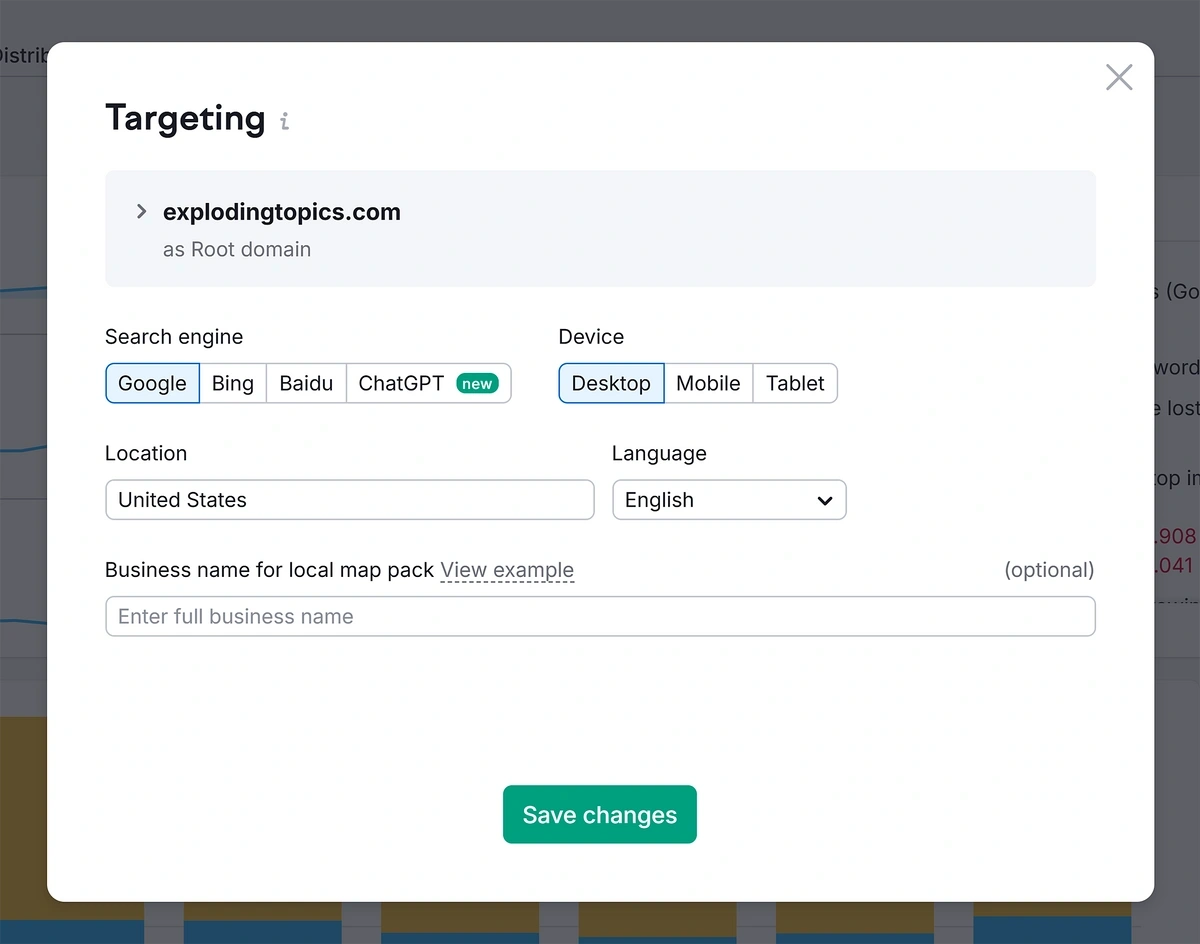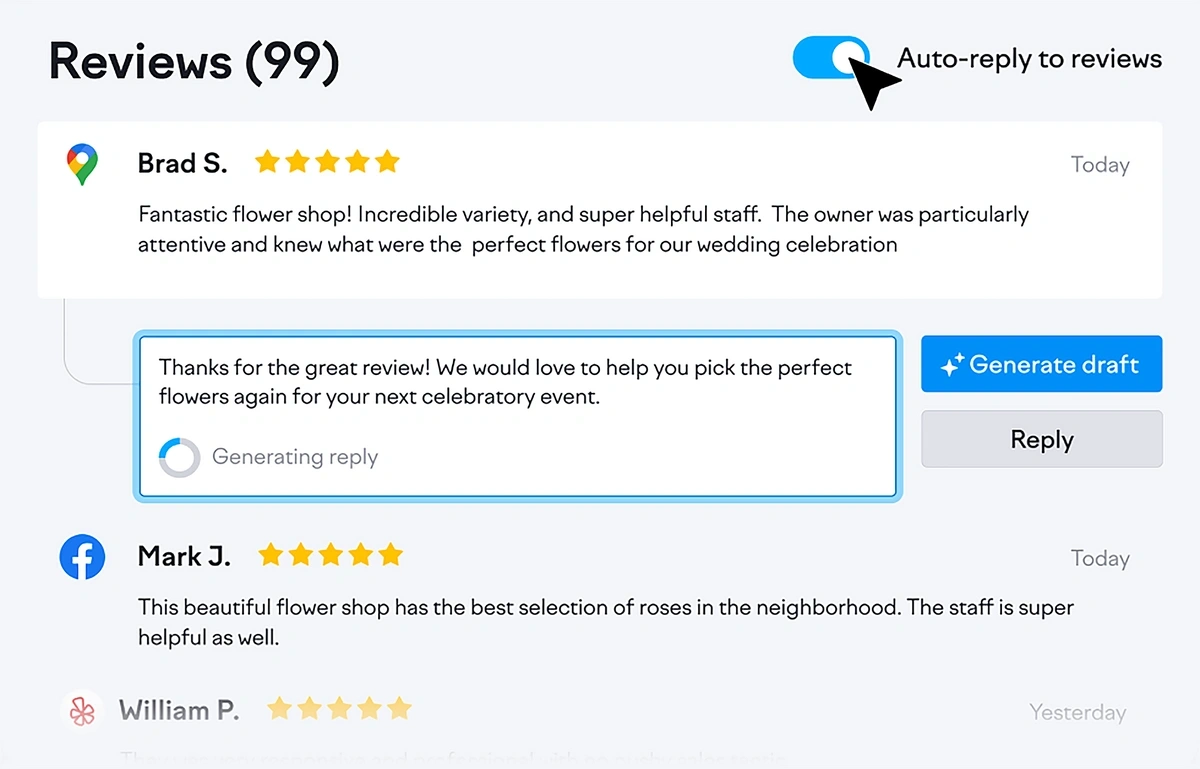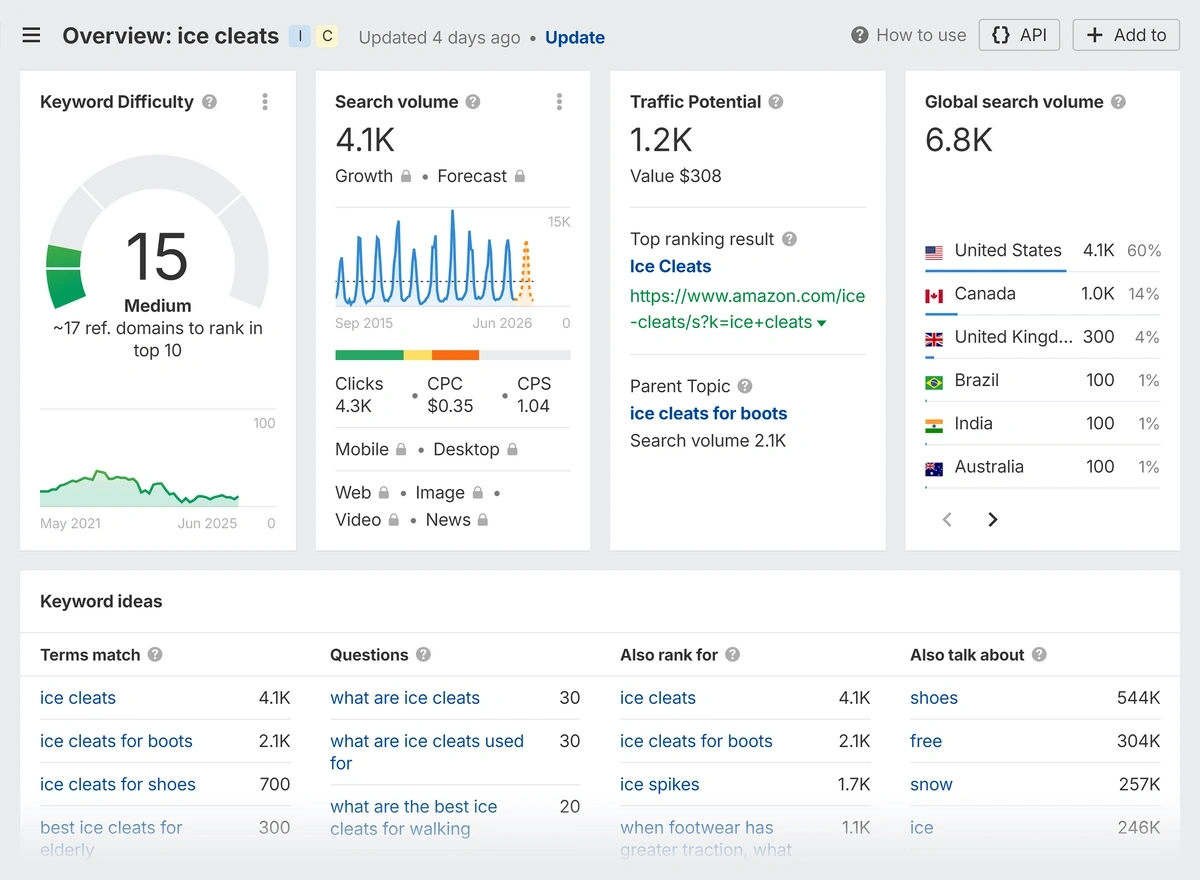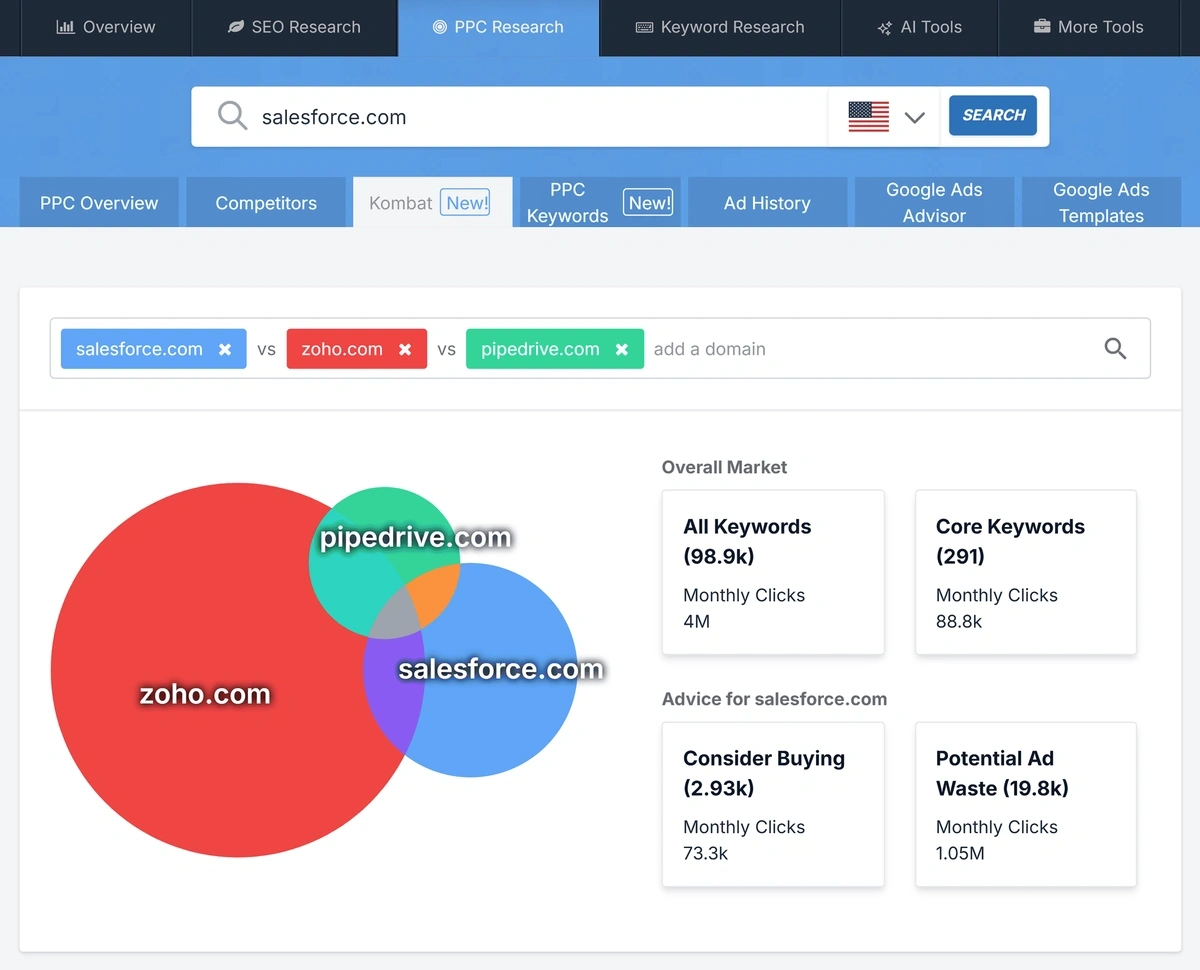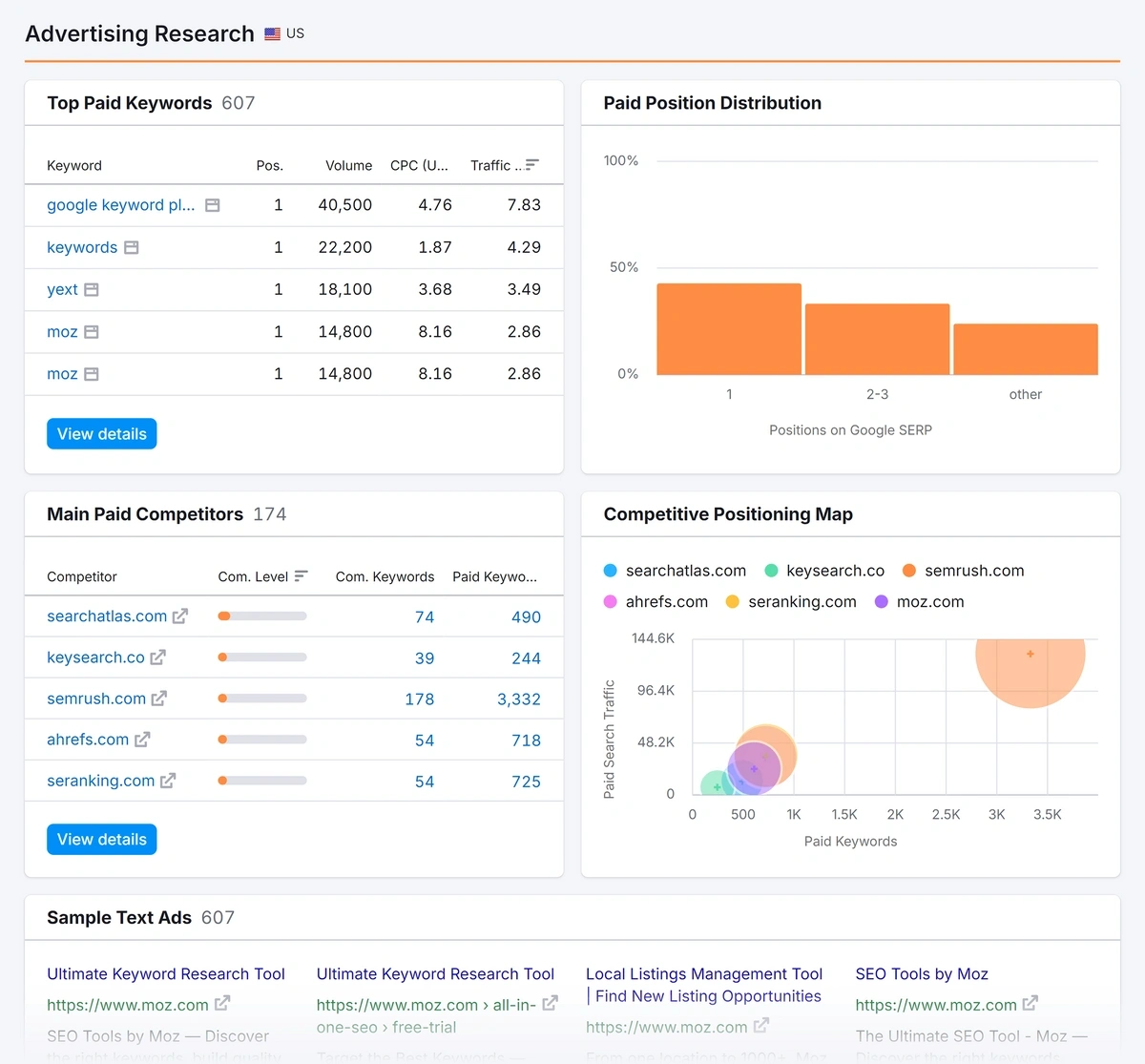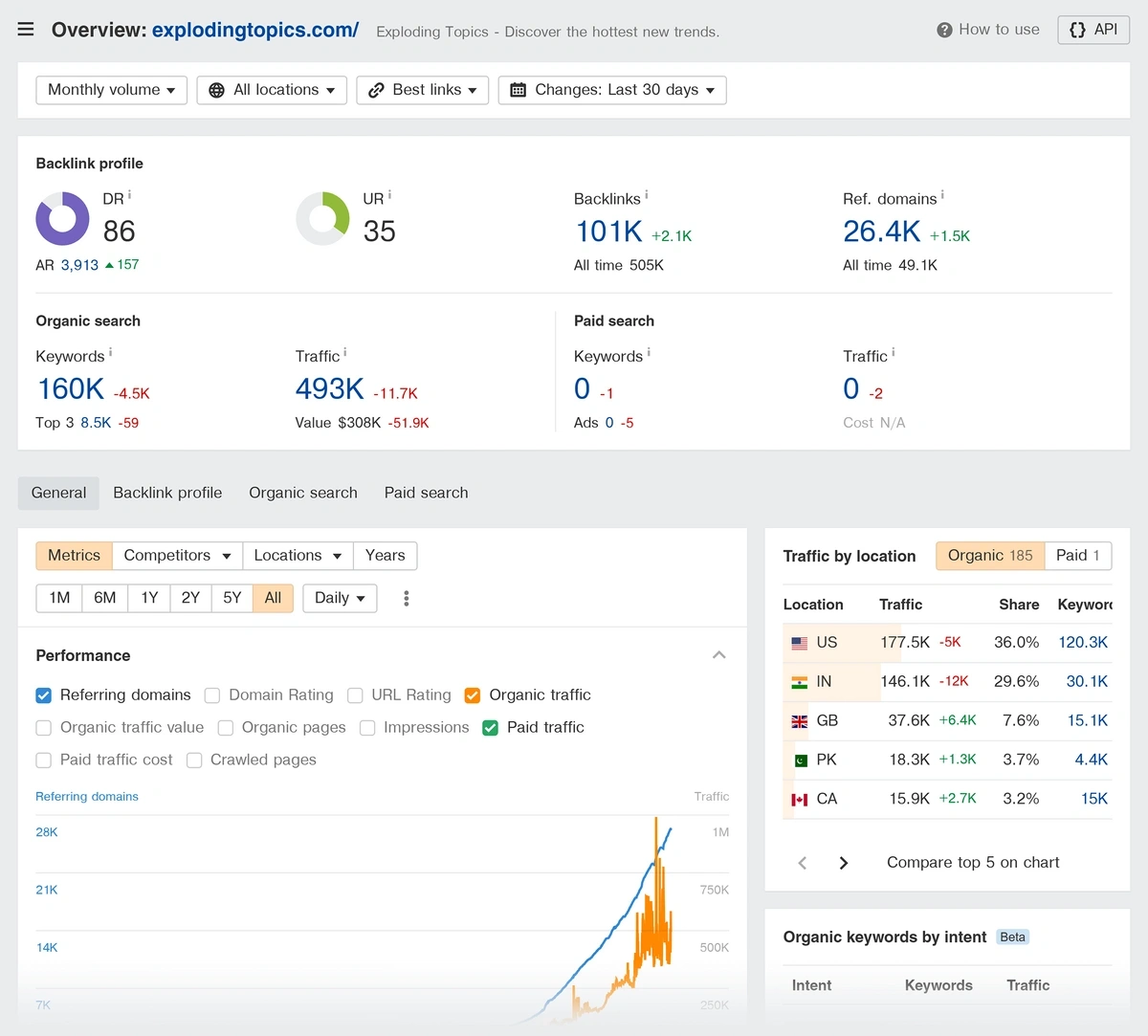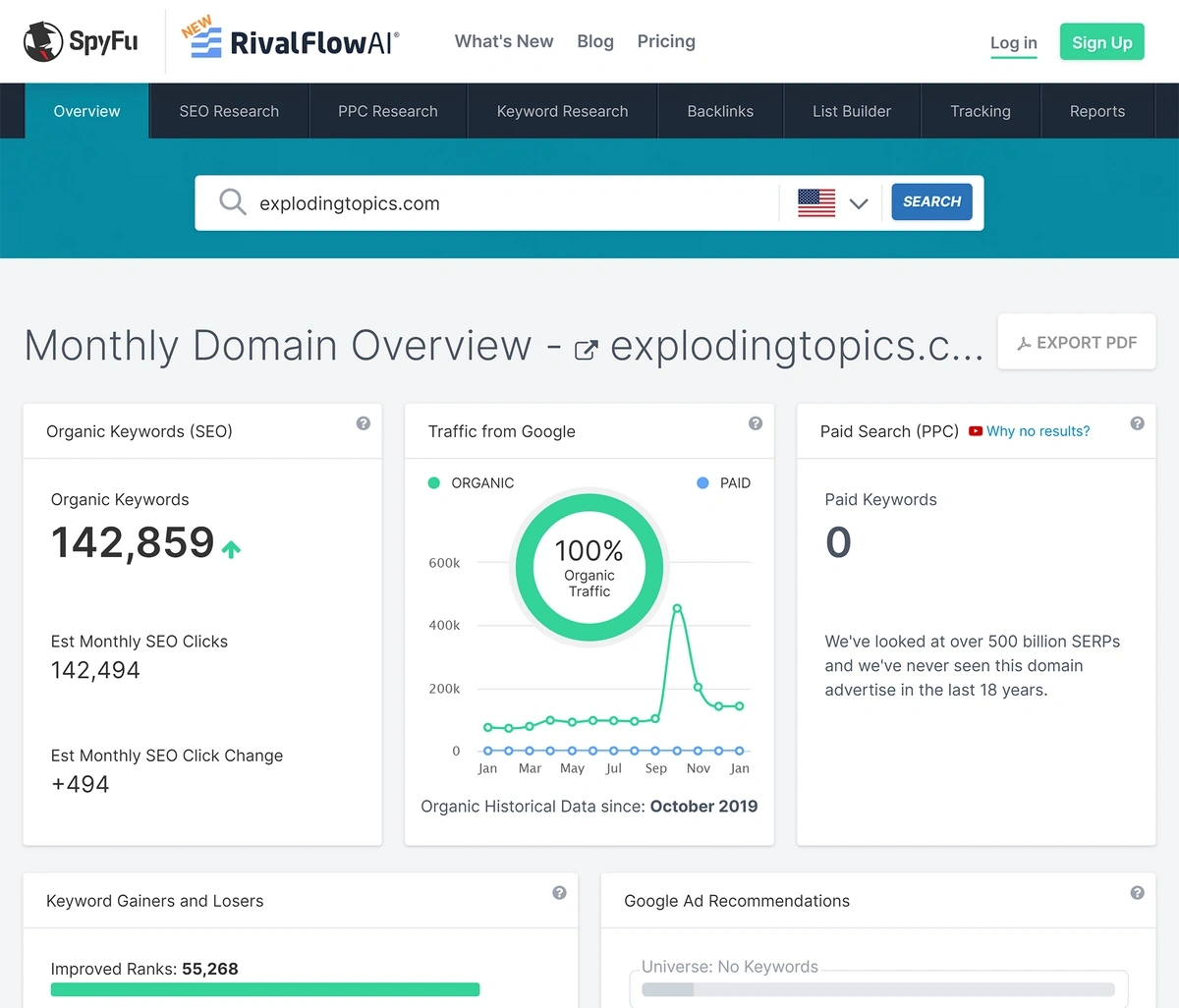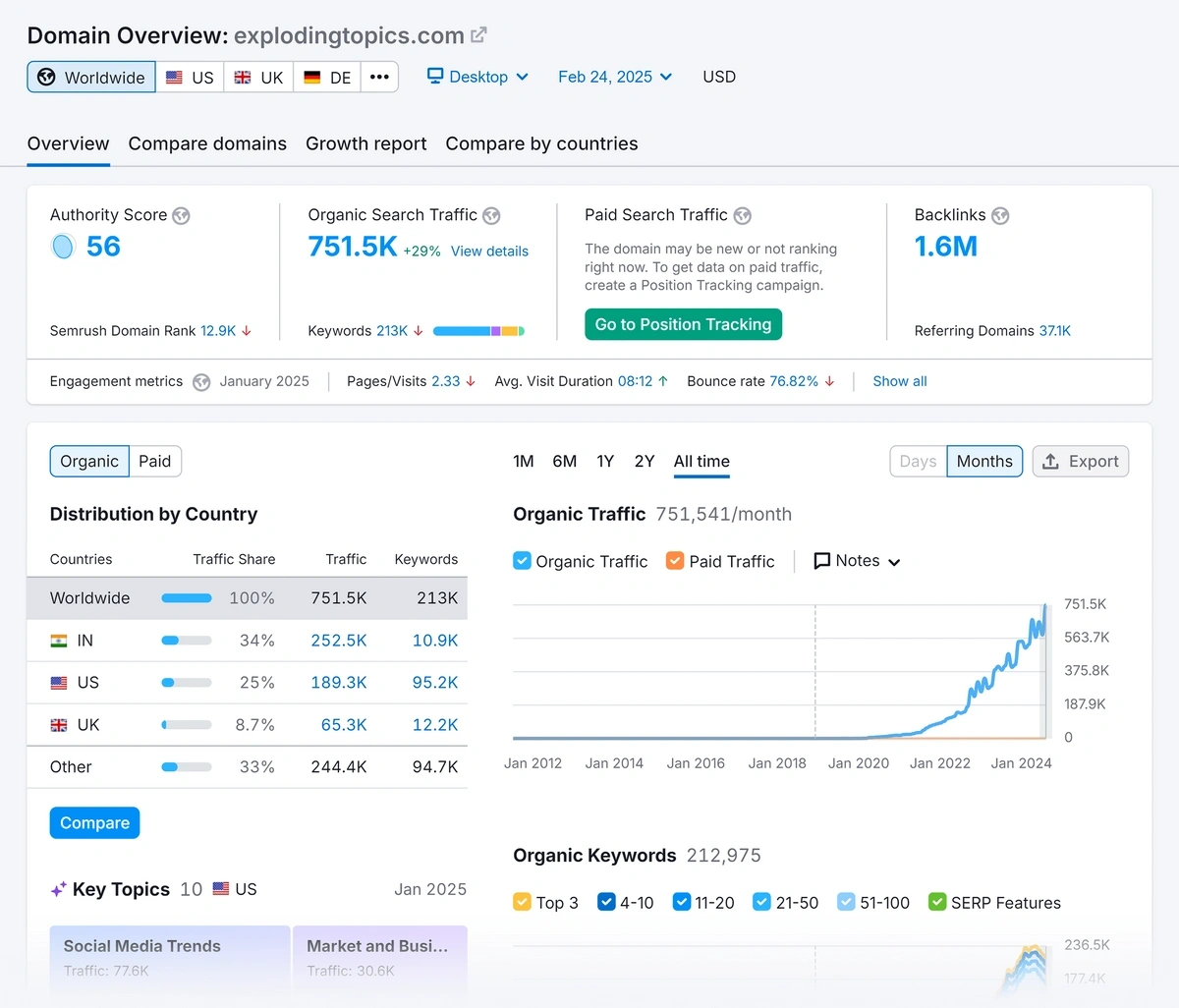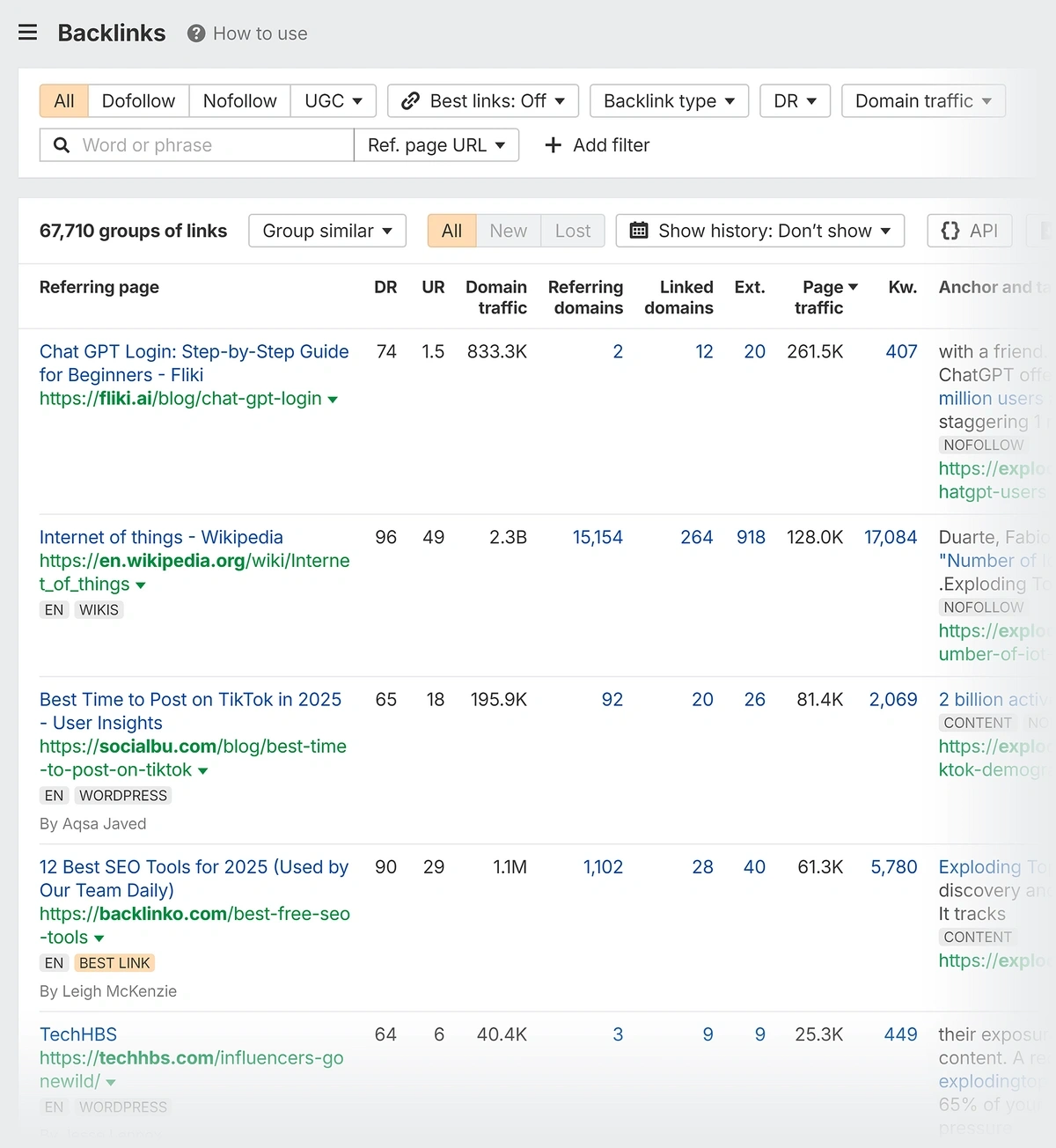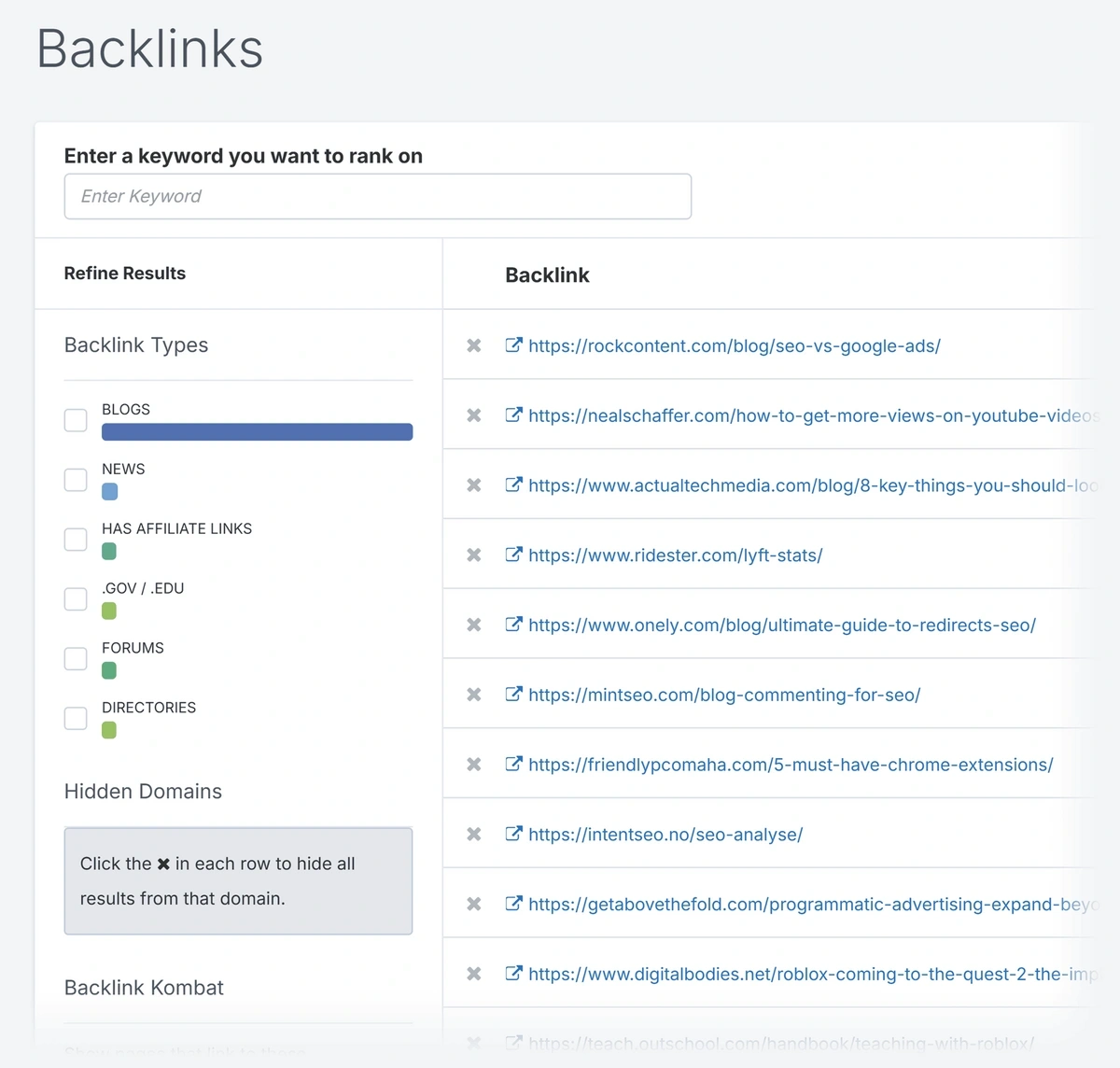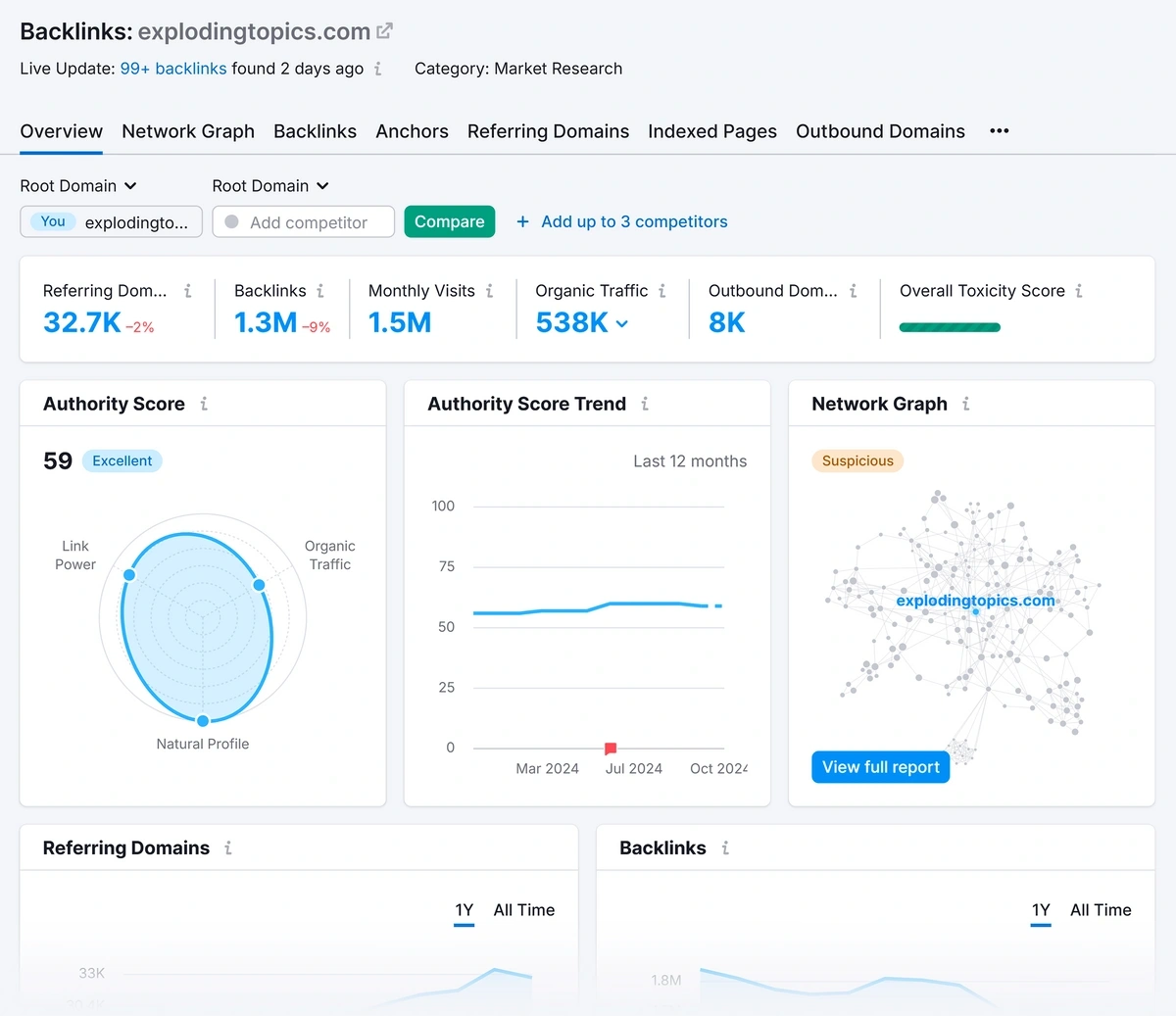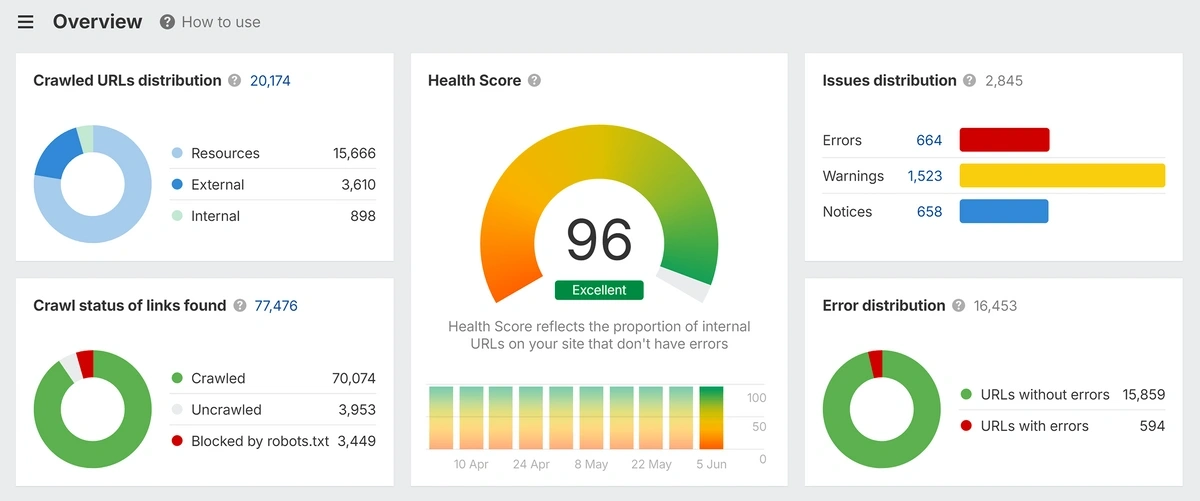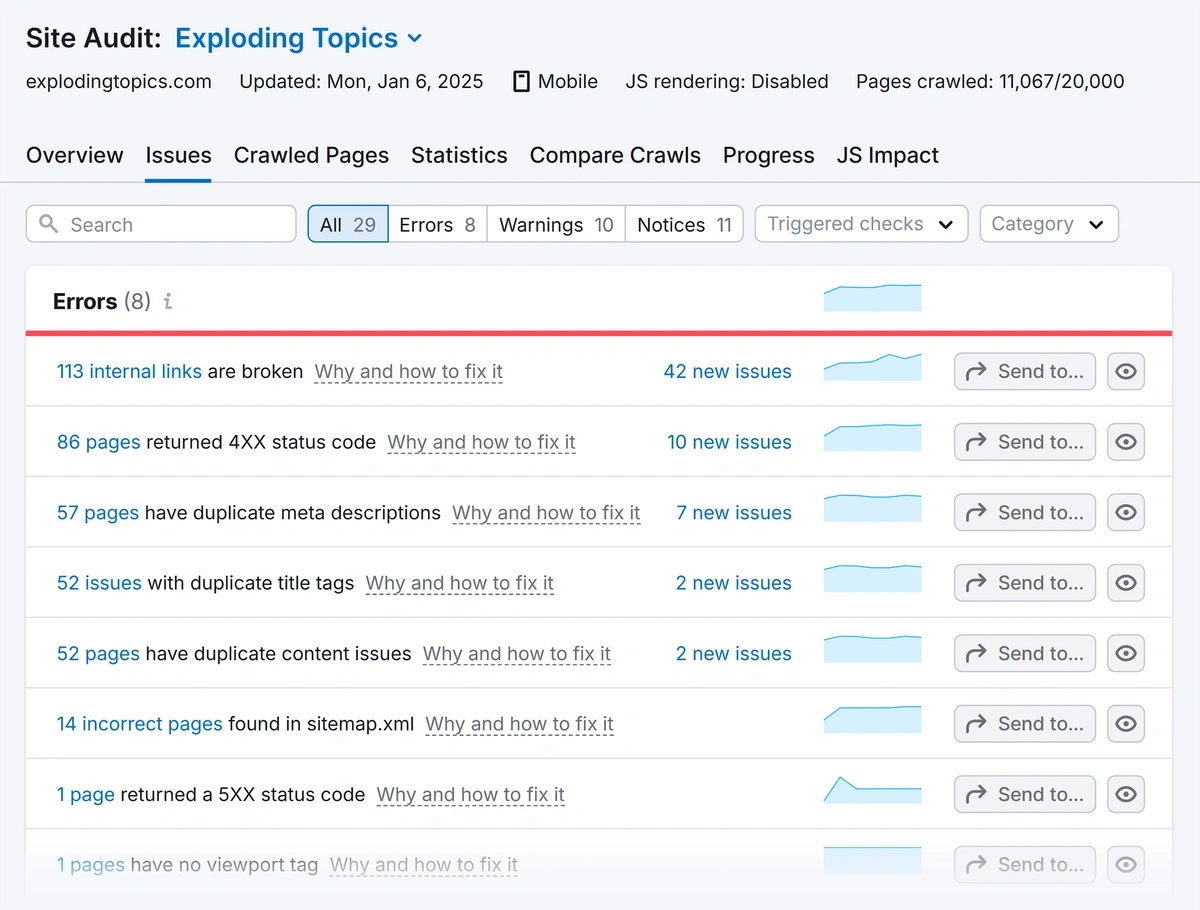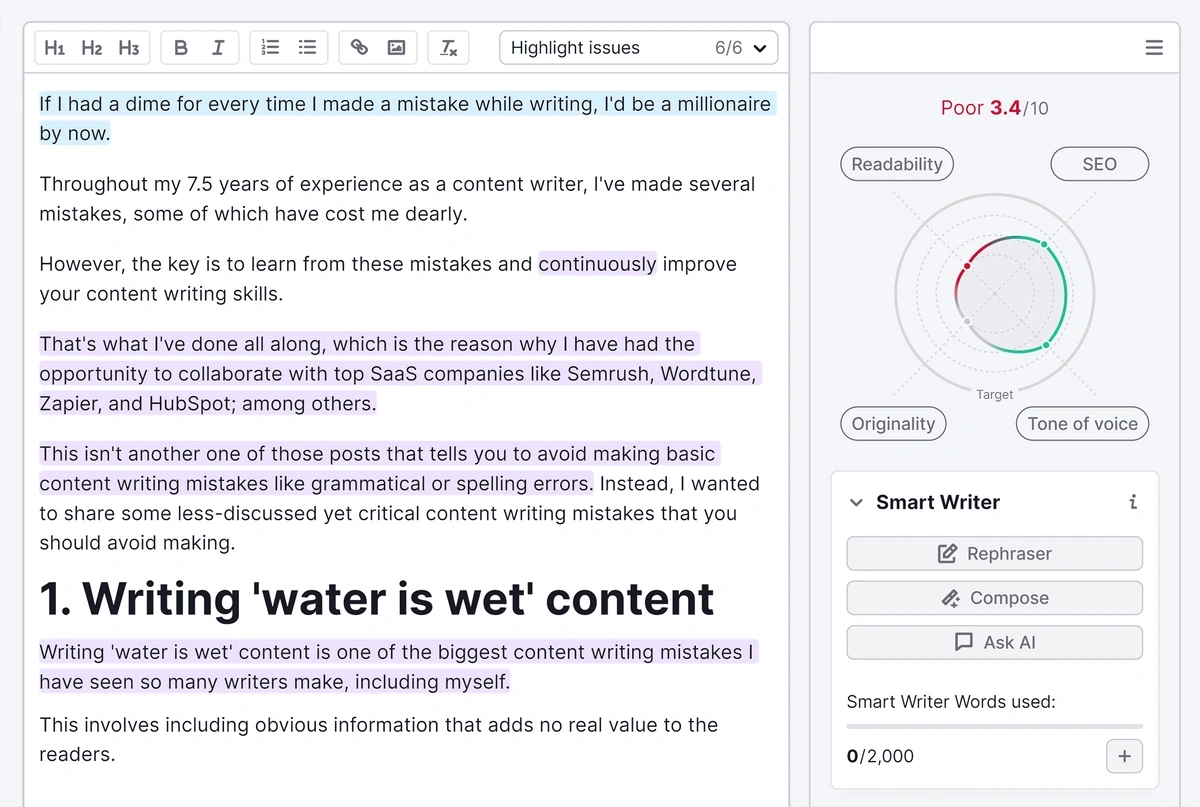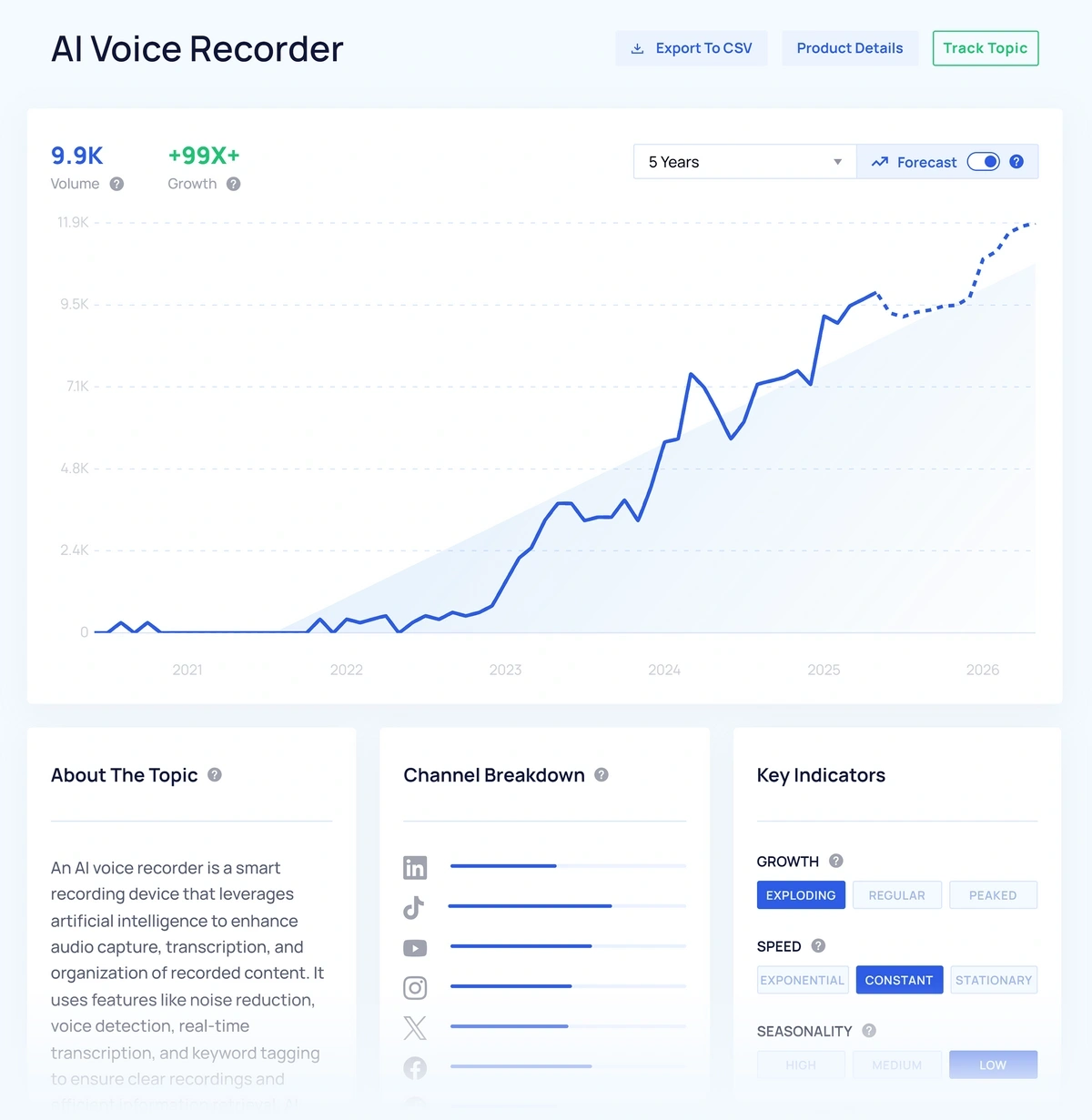Get Advanced Insights on Any Topic
Discover Trends 12+ Months Before Everyone Else
How We Find Trends Before They Take Off
Exploding Topics’ advanced algorithm monitors millions of unstructured data points to spot trends early on.

Keyword Research
Performance Tracking
Competitor Intelligence
Fix Your Site’s SEO Issues in 30 Seconds
Find technical issues blocking search visibility. Get prioritized, actionable fixes in seconds.
Powered by data from
Ahrefs vs. SpyFu vs. Semrush: What’s the Best SEO Tool in 2025?
Ahrefs, SpyFu, and Semrush are three popular SEO tools used by marketers in a range of industries.
I've spent more than a decade using each of these tools for various purposes—and with companies of all sizes. In this in-depth guide, I’ll share my experiences with Ahrefs, SpyFu and Semrush while breaking down the platforms’ differences and providing recommendations about the best fit for your needs.
What is Ahrefs?
Ahrefs is a comprehensive SEO tool used to research keywords and backlinks, analyze competitors, and conduct website audits. You can use Ahrefs to see a limited amount of information about your website for free, and paid plans give you access to a full slate of optimization tools.
Want to Spy on Your Competition?
Explore competitors’ website traffic stats, discover growth points, and expand your market share.
Top Ahrefs Features
Standout Ahrefs tools include:
- Keywords Explorer: a tool for evaluating SERPs and developing lists of target keywords based on search volume, difficulty, or competitor rank
- Brand Radar: a tool that shows you how your brand (or a competitor’s) gets mentioned across traditional Google results, AI Overviews, ChatGPT, and Perplexity
- Content Explorer: a tool for finding low-competition topic ideas and backlink prospects
- Site Audit: crawls webpages, scans for content and technical SEO issues, and ranks fixes in order of importance
Ahrefs Pros and Cons
I used Ahrefs as my exclusive SEO tool for years, and today it’s one of several that I use for different reasons. These are the biggest pros and cons that I’ve come across in my time using the platform.
Ahrefs Pros:
- Large keyword database
- Easy-to-read site audit reports
- Project organization and reporting tools
- Helpful videos and learning paths for new users
- Free Webmaster Tools plan
- Affordable Starter plan
- Suggestions to improve internal links between pages
Ahrefs Cons:
- Credit-based crawl system
- Limited keyword research credits (on some plans)
- Historical data only available on paid plan
- Limited content optimization insights
- No support for local citation SEO aside from Google Business Profile
- Some features are only available as a paid add-on
Read our complete Ahrefs review to learn more about this tool and decide if it’s right for you.
Who Should Use Ahrefs?
Ahrefs has a large keyword database, basic interface, and ample customization options, so it’s best suited for people who have some prior SEO experience.
However, small business owners may like the fact that they can use some Ahrefs tools for free. The Webmaster Tools plan allows verified site owners to monitor site traffic, top keywords, and other core metrics on a dedicated dashboard. Ownership verification requires connecting Ahrefs to your Google Search Console account or adding an Ahrefs Web Analytics tag to your site.
What is SpyFu?
SpyFu is a marketing tool that’s useful for SEO and PPC research. You can actually do a lot of SEO research without ever logging into SpyFu—so it’s good for small businesses and new SEO practitioners working on a small budget.
Top SpyFu Features
SpyFu offers a straightforward set of tools that are similar to those found in Semrush and Ahrefs. The platform’s top features include:
- SpyGPT for analyzing brand or competitor mentions in ChatGPT results
- Keyword Overview to analyze SERP results
- Domain Overview to see key metrics about any URL’s SERP performance, traffic, and backlinks
- PPC Kombat to see competitive positioning maps for the paid SERP
- Google Ads Templates to help you create paid ad campaigns
SpyFu Pros and Cons
I’ve used SpyFu as both an in-house marketer and a freelance consultant. Its feature set is limited compared to Ahrefs and Semrush, but it has some benefits … especially for marketers on a budget.
SpyFu Pros:
- Ample information available for free
- Easy-to-understand paid ad recommendations
- Free analysis of brand mentions in ChatGPT
- User-friendly interface
SpyFu Cons:
- Free data only available while logged out; you can’t save your work
- Limited backlink analysis tool capabilities
- No notable support for local SEO initiatives
- Some features require a separate subscription to an AI tool
- Historical keyword data only available on paid plan
Check out our deep dive into SpyFu vs. Semrush to learn more about how these two tools stack up.
Who Should Use SpyFu?
Having used the paid versions of all three tools, I find SpyFu to be the weakest. You can simply do more with a paid Ahrefs or Semrush subscription.
If you’re interested in a free tool, though, SpyFu can’t be beat. This makes it a good choice for small business owners or early-career marketers without the money to spend on a complete SEO solution.
What is Semrush?
Semrush is an all-in-one SEO tool with some similar features to Ahrefs. It’s useful for monitoring the performance of your business website, managing multiple clients’ SEO performance, researching competitors, optimizing content, and more.
Top Semrush Features
Semrush has a diverse feature set compared to other SEO tools on the market today. Its most notable features include the:
- Keyword Overview and the Keyword Magic Tool, both used to find keyword volume, competition scores, and related SERP data
- Keyword Strategy Builder that groups your keywords into clusters for an instant SEO content strategy
- Link Building Tool that helps you find and reach out to prospects to request high-quality backlinks
- Topic Research that helps you come up with new content ideas
- SEO Writing Assistant for finding semantic keywords and analyzing your content optimization as you write
- Traffic & Market toolkit that helps you keep an eye on competitors and changing industry trends
Semrush Pros and Cons
Semrush is one of the three SEO tools I use the most (the others being Ahrefs and SE Ranking). I find that Semrush does a lot of things well, especially when it comes to position tracking and content analysis. But no tool is perfect!
Semrush Pros:
- Generous free plan
- Personalized keyword difficulty scores for organic search
- Domain topic analysis
- Real-time content feedback while you write
- Backlink toxicity analysis
- Easy-to-understand competitive intelligence metrics
- Link building tools
- Dedicated site audit tool
- Local citation support
- App center options to help you expand the tool’s functionality
Semrush Cons:
- Expensive paid plans
- Some features are only available as a paid add-on
- Smaller keyword database than some competitors
- Limited internal link analysis
Read our extensive Semrush review for a comprehensive breakdown of everything the platform has to offer.
Who Should Use Semrush?
The fact that you can do a range of digital marketing tasks with Semrush makes it a great choice for business owners and professional marketers alike.
How do Ahrefs, SpyFu, and Semrush Compare?
| Ahrefs | SpyFu | Semrush | |
| SEO audits | ✅ | ✅ | ✅ |
| Organic search traffic estimates | ✅ | ✅ | ✅ |
| Keyword ideas | ✅ | ✅ | ✅ |
| SERP rank tracking | ✅ | ✅ | ✅ |
| ChatGPT rank tracking | ⛔ | ✅ | ✅ |
| Local SEO | ✅ | ⛔ | ✅ |
| PPC campaign research | ✅ | ✅ | ✅ |
| Competitor research | ✅ | ✅ | ✅ |
| Trend discovery | ⛔ | ⛔ | ✅ |
| Trend forecasting | ⛔ | ⛔ | ✅ |
| Content planning | ⛔ | ⛔ | ✅ |
| Content editing | ✅ | ✅ | ✅ |
| AI content generation | ⛔ | ✅ | ✅ |
| Social media management | ⛔ | ⛔ | ✅ |
Keyword Research
Ahrefs, SpyFu, and Semrush all include a keyword research tool that shows you essential metrics like:
- Domain authority
- Monthly search volume
- Search volume by country
- Keyword difficulty or competition score
- Related keywords
- Current SERP ranking
Each of the three tools pulls their keyword data from a different proprietary database, so the keyword metrics displayed by each tool may be slightly different.
Check out the differences reported by each tool when I look up the term “best SEO software”:
| Search Volume | Keyword Difficulty | |
| Ahrefs Keyword Explorer | 4,100 | 64 out of 100 |
| SpyFu Keyword Overview | 320-480 | 60 out of 100 |
| Semrush Keyword Overview | 1,300 | 69 out of 100 |
The larger a tool’s keyword database, the more likely you are to find information about highly specific long-tail keywords or terms that are popular in specific regions.
| Number of Keywords in Database | |
| Ahrefs | 28.7 billion |
| SpyFu | 73 billion |
| Semrush | 26.7 billion |
Keyword database size isn’t the only metric to consider when choosing an SEO tool, though. Sometimes, a tool with a smaller database will have better results for your country or offer other useful features, like a big backlink database.
It’s also important to consider how your website’s existing content impacts keyword difficulty scores.
If you want to write an article about a topic for which your site already has a lot of information, this might make a high-competition keyword easier for your site to rank on. Semrush is the only tool that lets you customize your keyword research reports to show personalized keyword difficulty scores.
The Verdict: SpyFu has the largest keyword database, but only Semrush shows you a personalized difficulty score. This feature alone is enough to make me choose Semrush as the best tool for keyword research.
Position Tracking
Looking up target keywords search volume is only one part of the optimization process. You also need to be able to track keyword rank.
Ahrefs, SpyFu, and Semrush all let you create keyword reports and track rank changes, though each tool works with different search engines:
- Ahrefs supports tracking Google keyword rank
- SpyFu supports rank tracking on both Google and Bing
- Semrush supports rank tracking on Google, Bing, Baidu, and ChatGPT
It’s also important to consider the locations in which you want to track position changes, as not all SEO tools are equal:
- Ahrefs: 190 countries
- SpyFu: 23 countries
- Semrush: 117 countries
The Verdict: Ahrefs wins when it comes to position tracking for Google SERPs thanks to their extensive geographic coverage. If you need or want to track other search engines—including AI search tools—then Semrush becomes the top choice.
Get More Search Traffic
Use trending keywords to create content your audience craves.
Local SEO
Semrush and Ahrefs offer tools to help businesses improve their local citations. (SpyFu doesn’t provide its users with local SEO tools.)
Ahrefs has a local SEO solution that's still in beta; the company says that business owners can import their information and monitor for any Google Business Profile changes.
Semrush offers a similar tool, but it scans for changes in multiple online directories. You can also manage and respond to customer reviews directly through the Semrush Local platform.
The Verdict: If you have a brick-and-mortar business location that you want to drive searchers to, go with Semrush. The ability to scan and update multiple directories makes it super valuable.
PPC
Ahrefs, SpyFu, and Semrush all support pay-per-click (PPC) advertising and search engine marketing (SEM) campaigns.
Ahrefs provides top-level PPC information including cost per click (CPC), competitor ad copy, and estimated paid traffic per competitor webpage.
SpyFu gives you basic CPC data when you look up a keyword; the tool’s Kombat feature also shows you how your competitors’ competitors stack up in the SERP and whether they share paid keywords.
Semrush displays CPC information via its Keyword Overview tool; you can also see paid competitive positioning maps, ad copy, and more when using the Domain Overview tool.
PPC Comparison Table: Ahrefs, SpyFu, and Semrush
| Ahrefs | SpyFu | Semrush | |
| Keyword CPC | ✅ | ✅ | ✅ |
| Most successful advertiser per keyword | ⛔ | ✅ | ⛔ |
| Paid search volume | ⛔ | ✅ | ✅ |
| Recommended keywords to buy | ⛔ | ✅ | ⛔ |
| Competitor ad copy / history | ✅ | ✅ | ✅ |
| Total competitor keywords | ✅ | ✅ | ✅ |
| Competitor paid keyword rankings | ✅ | ⛔ | ✅ |
| Paid competitive positioning map | ⛔ | ✅ | ✅ |
| Google Shopping PLA data | ⛔ | ⛔ | ✅ |
| PPC keyword campaign generator | ⛔ | ⛔ | ✅ |
| AI ad generation tools | ⛔ | ⛔ | ✅ |
| Google Ad templates | ⛔ | ✅ | ⛔ |
| Google Ads automation tools | ⛔ | ⛔ | ✅ |
| Competitor paid traffic by page | ✅ | ✅ | ⛔ |
The Verdict: If you’re a beginner at PPC advertising, SpyFu is a good choice. It provides just enough data without being overwhelming, and the app’s “good buy” PPC keyword suggestions can help you plan your first strategy. Experienced PPC advertisers may prefer Semrush, though, as the platform offers more information about ads.
Competitor Analysis
Ahrefs, SpyFu, and Semrush offer comparable competitor analysis tools.
The Ahrefs Site Explorer shows you a domain’s monthly traffic, backlinks, paid and organic keywords, primary SERP search intent, and page status codes.
SpyFu’s Domain Overview report provides monthly data on organic traffic, paid and organic keyword distribution, rank changes, top pages, and domain competitors.
The Semrush Domain Overview tool shows you traffic, paid and organic keywords, key topics, keyword opportunities, SERP feature distribution, ad copy, and backlinks.
The Verdict: Semrush wins for best competitive analysis tool due to its “key topics” report. This is useful when you want to figure out what overarching entities are associated with a competitor’s site—you can then use this information to adjust your own content and PPC strategies.
Backlinks
There are three things an SEO tool can do when it comes to backlinks:
- Show you the links associated with a domain
- Analyze and rank backlinks by domain toxicity level
- Help you strategically remove or acquire backlinks
Ahrefs includes a nice backlink analytics overview as part of its Domain Explorer tool; you can also get a good picture of your referring domains when running a site audit. The platform doesn’t include any dedicated backlink tools, though, and there’s no support for building a better backlink profile.
SpyFu is most useful for looking at the backlinks associated with a domain. The tool doesn’t offer any more advanced features for assessing domain toxicity or improving your backlink profile.
Semrush is useful for both off-page and on-page SEO purposes, including building backlinks. The Backlink Analytics and Backlink Audit tools make it easy to see who’s linking to a site and how toxic those links may be. And if you’d like to improve your backlink profile, the Link Building Tool helps you find opportunities and reach out directly to site owners to request a link.
The Verdict: Semrush is the best choice for backlink analysis. I find it really easy to understand how healthy a backlink profile is while using the audit tool, and I’ve never used anything quite like the link building tool. The fact you can reach out to site owners without switching to another app is a game changer.
Want to Beat Your Competition?
Find out who’s linking to them and build a better backlink strategy.
Site Audits
Ahrefs, SpyFu, and Semrush all allow you to conduct site audits, but the tools offer varying levels of technical SEO and content auditing support.
Ahrefs site audit reports include a review of your top technical SEO issues like indexability and site speed as well as recommendations for improvements. One of Ahrefs’ standout features is its internal link analysis, which includes specific suggestions (including anchor text) that you can follow to improve your link structure.
SpyFu reports are closer to Ahrefs’ Site Explorer or Semrush’s Domain Overview analysis than a true website audit. You can see top-level information about a domain, including broken links, but SpyFu doesn’t let you dig deep into technical issues, site speed, or information architecture.
Semrush Site Audit reports are similar to those found in Ahrefs and include information on site speed, schema markup, Core Web Vitals, crawlability, and other technical issues. Like Ahrefs, Semrush also provides suggestions for how to fix your top SEO issues.
The Verdict: Ahrefs excels at site audits thanks to its internal link analysis. Semrush lets you see what pages have broken or incorrect internal links, but only Ahrefs provides suggestions for new internal links that you can create in your content management system.
Content Marketing
An increasing number of SEO tools, including Ahrefs and Semrush, are adding content marketing tools to their slate of features. These can range from a review of your page readability to immediate feedback on semantic keyword use.
Ahrefs has an AI Content Helper tool that analyzes competitors and addresses key topics that can be helpful to cover in your content. I’ve used the Content Helper tool in the past and, while the topic analysis was helpful, I found its scoring system to be lacking. Plus, the Content Helper isn’t as customizable as similar tools offered by Semrush, SE Ranking and Clearscope.
| Ahrefs Content Helper | Semrush SEO Writing Assistant | SE Ranking Content Marketing Platform | Clearscope | |
| Create downloadable content briefs | ⛔ | ✅ | ✅ | ⛔ |
| Add and remove semantic keywords or topics | ⛔ | ✅ | ✅ | ✅ |
| Get real-time writing feedback | ✅ | ✅ | ✅ | ✅ |
| AI-generated metadata or headers | ✅ | ✅ | ✅ | ✅ |
| Analyze readability | ✅ | ✅ | ✅ | ✅ |
| Check tone of voice | ⛔ | ✅ | ✅ | ⛔ |
| Scan for plagiarism | ⛔ | ✅ | ✅ | ⛔ |
SpyFu doesn’t offer content recommendations in its main interface; you have to subscribe to a separate tool called RivalFlowAI. The RivalFlow tool suggests improvements and gives you AI-generated text to use in your document if you so desire.
Semrush has the most robust content marketing toolkit on this list. You can create content briefs for specific keywords, analyze readability and tone of voice, find semantic keywords, scan for plagiarism, and get optimization feedback while you write.
The Verdict: Semrush is the best choice for content marketers who want an easy way to source semantic keywords, evaluate competitors, and get feedback on their writing. There are also Semrush extensions for Google Docs and Microsoft Word, so you can use the tool without leaving your writing platform of choice.
Price
All three platforms offer a free plan tier, though what you can do with this access varies. Regardless of the tool you choose, though, a paid subscription gives you access to the largest variety of SEO features.
| Ahrefs | SpyFu | Semrush | |
| Free plan access | Basic traffic and keyword data for owned sites | Extensive organic and paid traffic / SERP data for any domain or keyword | Site audits; 10 daily keyword research, backlink and competitor queries; 10 tracked keywords |
| Paid plan starting price | $29 per month for the Starter plan | $33 per month for the Basic plan (billed annually) | $117.33 per month for the Pro plan (billed annually) |
| Optional paid add-ons | AI content helper, report builder, AI assistant for site audits | RivalFlow AI | Report builder, lead generation suite, advanced trend tracking tools |
The Verdict: SpyFu gives you the most information for free without logging in, though you can’t save your work—even if you own the site you’re analyzing. If you want to conduct basic keyword research and track your site performance, then Ahrefs’ starter plan is the best choice.
Experienced marketers who need full access to an SEO tool should choose Ahrefs or Semrush—I recommend the latter if you’re going to do a lot of content optimization work.
What About Trend Tracking?
All SEO tools let you see the current or historical state of a SERP—but they don’t always let you see how interest in a term has changed over time. And fewer still offer a look at how topic popularity might change in the future.
But this is an important part of digital marketing! Whether you’re planning product launches, digging into competitive research, or building a new client’s SEO strategy, it’s good to know whether interest in a topic or term is likely to fluctuate with the seasons, decline, or spike in the future.
While every Semrush keyword report includes a basic trend graph, you can unlock the ability to dig deep into trends with an Exploding Topics Pro subscription. Exploding Topics lets you see things like popularity by channel, key growth indicators, and future trend forecasts.
FAQ
What’s the Best Free SEO Tool?
SpyFu offers the most free access, and you don’t need an account to start your SEO research. If you’d like to save your work and create tracked keyword reports for free, then Semrush is the best choice.
Is Ahrefs Better Than Semrush?
Ahrefs and Semrush are both very reliable SEO tools. If you’re interested in building internal links and working on technical SEO tasks, then Ahrefs is a great choice. Marketers interested in improving their SEO content or local SEO performance will be best served by Semrush.
How Does SpyFu Compare to Semrush?
The biggest difference between SpyFu and Semrush is the fact that Semrush offers basic keyword and domain overview reports, while Semrush lets you run deep site audits and analyze content. SpyFu is good for top-level SEO insights; Semrush is better for planning and tracking long-term SEO work.
Enhance your SEO tools with Exploding Topics Pro
Whether you decide Ahrefs, SpyFu, or Semrush is best for your needs, you can expand the scope of your SEO research ability with Exploding Topics Pro. Grab a free seven-day trial now and explore all of the data it has to offer—and get ahead of your competitors.
Stop Guessing, Start Growing 🚀
Use real-time topic data to create content that resonates and brings results.
Exploding Topics is owned by Semrush. Our mission is to provide accurate data and expert insights on emerging trends. Unless otherwise noted, this page’s content was written by either an employee or a paid contractor of Semrush Inc.
Share
Newsletter Signup
By clicking “Subscribe” you agree to Semrush Privacy Policy and consent to Semrush using your contact data for newsletter purposes
Written By


Emily is a freelance content writer at Exploding Topics. A former news correspondent, she has over 15 years' experience creati... Read more




